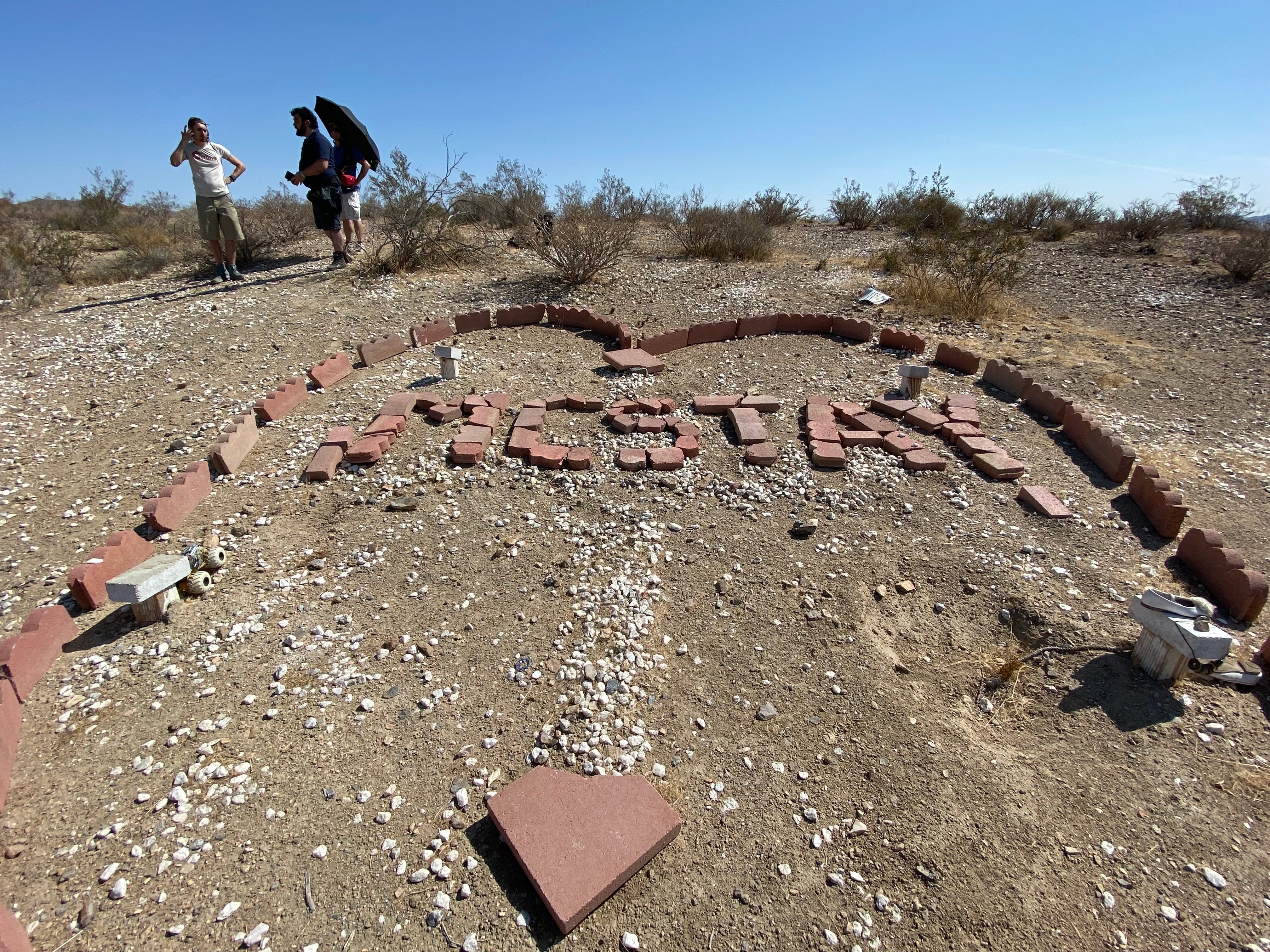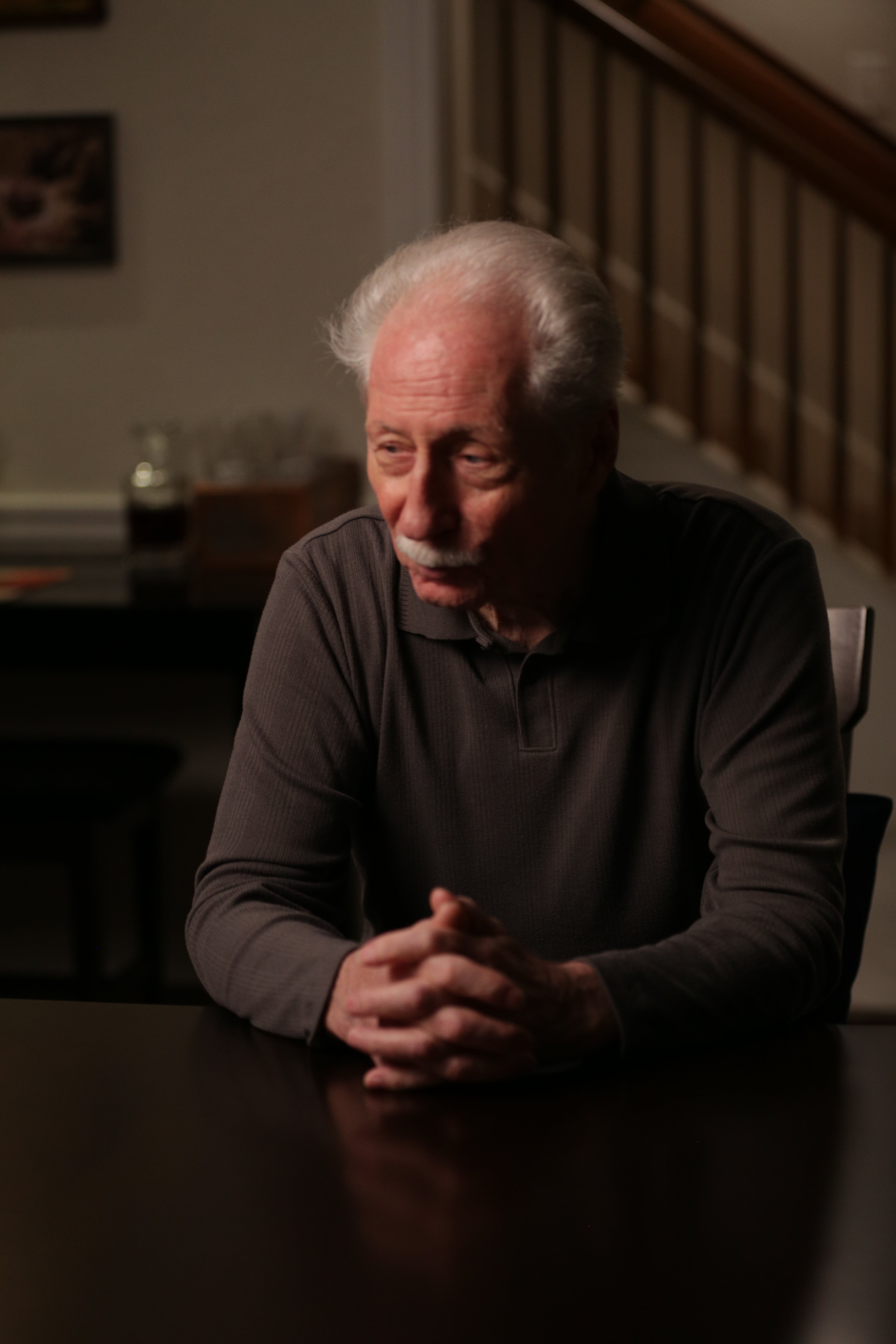
The McStays looked like the All-American family living the dream. Joseph Sr ran a successful waterfall business in suburban California, spending every inch of spare time with his raven-haired wife, Summer, and their two young sons, Gianni, four, and Joey Jr, three.
They had a loving circle of friends and family, enjoyed taking trips and watching their young sons grow and learn.
Then, in February 2010, they vanished.
There wasn’t a sign or sound from them for nearly four years – until an off-road motorcyclist came upon two shallow graves in the Mojave Desert, tragically revealing the bodies of the couple and their children.
The shocking find led to even more mysteries – and revealed a surprising number of suspects who seemingly had motives to go after the family, according to a new series premiering this weekend on Investigation Discovery.
“It was sort of one sort of absurdity after the other,” Kevin Fitzpatrick, an executive producer of Two Shallow Graves, tells The Independent.

He adds: “There are so many actual other people who could potentialy be suspects and so many people who had motive. I think, normally when you [look at] a case, you’re like, ‘Oh, there could be one or two people involved.’
“There were potentially more than one or two people involved when we started this. That’s unusual.”
One of those suspects, Charles “Chase” Merritt, was convicted of the murders in 2019 and remains on death row in California. The ID series features new interviews with Merritt – who, unsurprisingly, remains adamant that he is innocent – as well as trial footage, interviews with legal teams and the McStays’ loved ones.
“With trial footage, and with getting access to Merrit and to the prosecution and to the defense attorneys, I think we were able to creat a much more intimate picture for an audience that gives you the whole story,” Mr Fitzpatrick says.
“It gives you the story of the trial, and it gives you the story of the relationship between Merritt and Joseph McStay, and it gives you the understanding of the families on both sides going through the trial ... one of the interview subjects that we talked to said, ‘This is going to be the comprehensive look at this story’ - which has not been done before.”
The case had been baffling from the start.
On a seemingly inconsequential day in early 2010, Mr McStay had a conversation with his father and told him he had a lunch meeting. That was the last time they would ever speak; no one heard from the McStays after 4 February 2010.
It took some time for people to become concerned; the family sometimes took small vacations, so it was more than a week before Mr McStay’s brother, Michael, stopped by the house to see if it held answers to where they might be.
He found rotting food and Mrs McStay’s prescription sunglasses; there was no sign of foul play. After he reported the family missing on 15 February, police discoverd the McStays’ vehicle had been towed from a parking lot near the border with Mexico on 8 February. Searches about travelling to Mexico were also uncovered on the family’s computer, bolstering a theory that they’d gone on a trip. The San Diego Sheriff’s Department even posted footage of a family that resembled the McStays walking across the border to Mexico.
For years, that was the prevailing belief among law enforcement.
That changed in November 2013, when the bodies were found in the desert – along with a sledgehammer believed to be the murder weapon.
The following year, police arrested Merritt, who’d worked with Mr McStay in his custom waterfall business. He had a criminal record and, it turned out, had been skimming money from the enterprise. As the investigation continued, it also emerged that the last call from Mr McStay’s phone had been to Merritt – whose cell phone pinged near a tower in the desert in the vicinity of the shallow graves.
Prosecutors told jurors Merritt killed the family after learning Mr McStay was cutting him out; they said the victim told friends Merritt was doing shoddy work and stealing money.
Merritt disputes the theory and argues, in the documentary, that he’d been the one raising the alarm about the McStays’ disappearance, claiming he would have reported the four missing if the family hadn’t.
He was convicted in June 2019, however, and sentenced to death the following January.

But there was an astonishing number of other people who’d had significant run-ins with the McStays, according to the new series.
There was Mrs McStay’s ex-boyfriend, who sent her an email just months before the family’s disappearance telling the mother-of-two he’d “love her for ever.” He lived nearby and had been arrested for threatning a neighbour and her daughter.
There was the new husband of Mr McStay’s ex-wife, a man with a history of violence who’d allegedly threatened to “muzzle” Mrs McStay and beat up her husband.
And then there was another associate from Mr McStay’s work, the computer whiz who maintained the company website – a man who’d sent messages to MrMcStay essentially threatening to destroy the site and ruin the business. Two Shallow Graves also points to an advertisement allegedly placed by the same man to sell the water fountain business from under its rightful owner.
Defence attorney Raj Maline in the series describes this suspect as “a walking, talking red flag” – but Merritt’s team was barred in court from bringing up him or the other suspects without concrete evidence linking them to the crimes.
“Lots of people’s names came up, and lots of different theories came up,” executive producer Jacinda A Davis tells The Independent. “I think that, when this show airs, so many people know the case ... There’s going to be a lot of debate.
“I think it’s a story where people want answers, and this project is another step in trying to give people answers to what really happened.”

Merrit himself, the producers say, was nervous to participate since he could not control the narrative. They spoke with him for months in 15-minute phone calls allowed by the prison – and both were taken aback by his knowledge of the case.
“It’s kind of remarkable,” Ms Davis says. “Kevin and I work a lot in true crime and talk to a lot of people who’ve been convicted, and Merritt knows his case inside and out – every single detail – in a way that I’ve never experienced before.”
“At the beginning, he’s like, ‘I know this case better than the attorneys,’” Mr Fitpatrick adds. “I’ve heard people say that before and it not be true.
“I think it’s probably true; he has read everything, he’s currently working on a book about his case and he’s constantly working on it in some way. From my discussions with him, that’s all he does, is work on his case.”
Merritt, in the series, contends: “They didn’t have any direct evidence to support that I did these crimes. Everything was circumstantial. Everything.
“So without direct evidence, then they have to show enough circumstantial evidence to convice the jury that it was me at their home and ... who killed them.”

Mr McStay’s friend, Gina Watson, and father, Patrick – who called Merritt a “ruthless mass murderer” in court and told him to “burn in hell” – are among the subjects interviewed in the series. Both are convinced of Merritt’s guilt, but even they shake their heads and raise eyebrows at some of the other unexpected threads to the case. When the family went missing, the pair began their own investigation, describing in the new series how they combed through the McStays’ emails and followed up any lead they could find.
“I never knew who did it,” Ms Watson says in Two Shallow Graves. “I never settled on anybody. I would follow all of these paths, but I never followed just one to the exclusion of the others.”
She says: “To be honest, I was not disappointed when they arrested Chase [Merritt] but scared that perhaps [investigators] didn’t look into the whole thing enough because of the fact that we found so much compelling stuff in these other people’s files.”
She adds that she “still” thinks one of the other suspects was involved in the brutal kilings.
“It’s not all as simple as it seems; I think that’s the point of the show,” Mr Fitzpatrick tells The Independent. “You weren’t allowed to bring in other suspects in court, in trial; in the show, we are ... I think it’s fair to say the show looks at other suspects, and it’s fair to say that, towards the end of the show, we will confront some of them.”
The seven-episode Two Shallow Graves premieres Sunday at 9/8c on Investigation Discovery and will be available to stream on discovery+.







